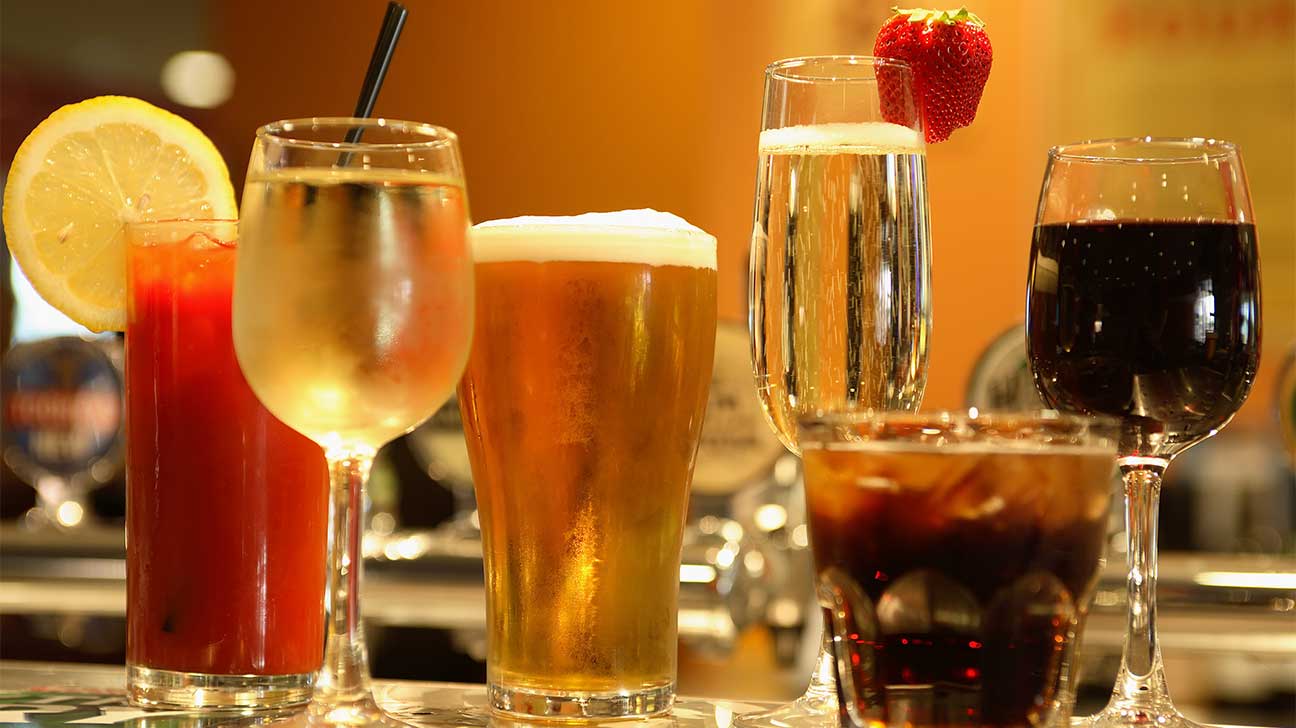
Millions of American adults drink alcoholic beverages, including beer, wine, or hard liquors, like whiskey, bourbon, vodka, and tequila.
While many drink in moderation, alcohol is also a common substance of abuse and can be addictive. But there’s not one type of alcohol that’s inherently more addictive than another.
They can differ in other ways, however. For instance, in their taste, how they are made, and their alcohol by volume, or ABV.
Is Hard Liquor More Dangerous Than Beer?
There are several characteristics and uses of hard liquor that can make it more dangerous to consume than your average can of beer.
Stronger Effects
Liquor has a higher alcohol content than your average can of beer or glass of wine. This means consuming even a small amount of liquor can have strong effects.
That includes common effects of drinking alcohol, such as reduced coordination, impaired judgment, lapses in memory, and poor reaction times.
Mixed Drinks
Liquor is also commonly used in cocktails, which may or may not be mixed in such a way that can make it difficult for you to tell how much alcohol is in your drink.
Some mixed drinks are specifically crafted so you can hardly taste the alcohol — but that doesn’t mean it’s not there.
This can, in some cases, lead someone to drink more alcohol than planned, and thus become more intoxicated, without realizing how much alcohol they’re consuming.
Binge Drinking
Liquors like bourbon and vodka are commonly consumed in shot form — in 1 to 1.5 oz quantities. Unlike beer, shots are typically consumed quickly and can lead to rapid intoxication.
Drinking four or more drinks (e.g. four shots) in a two-hour window is considered “binge-drinking,” which is associated with numerous health risks and dangers.
A standard drink of beer is about 12 ounces of beer (5 percent ABV), while a standard drink of liquor is 1.5 ounces (40 percent ABV).
Risks of binge-drinking liquor include:
- alcohol poisoning
- accidents/injury (e.g. falls, motor vehicle accident)
- sexually transmitted disease (e.g. hepatitis)
- chronic diseases (e.g. heart disease, liver disease)
- kidney and liver damage (including cirrhosis)
- fetal alcohol spectrum disorders
- alcohol use disorder
Physical Dependency
Alcohol dependence can develop if you drink heavily on a regular basis. This can occur from drinking a lot of beer, a lot of liquor, or any form of heavy drinking.
What’s dangerous about this? Dependence occurs when your body develops a physical reliance on alcohol, and can lead to the development of withdrawal symptoms within hours of your last drink.
Alcohol withdrawal can be dangerous. This can be most safely treated within a detox program, or an inpatient rehab program that offers detoxification services.
What Are Some Common Signs Of Alcohol Addiction?
People can become addicted to alcohol through frequent, excessive alcohol consumption.
Common signs of an addiction include an inability to cut down on or quit alcohol, and a compulsive need to keep drinking despite negative consequences.
There are also physical and mental signs of addiction, such as:
- alcohol cravings
- dependence and withdrawal
- worsened mental health
- frequent blackouts
- high tolerance for alcohol
What Is The Treatment For Alcohol Addiction?
Alcohol addiction treatment typically begins with detox. This involves getting the alcohol out of your system, and should ideally occur in a medically supervised setting for optimal safety.
A full substance abuse treatment program may offer:
- detox
- behavioral therapy
- individual and group counseling
- medication management
- relapse prevention skills training
Addiction recovery is a journey that may require treatment at multiple levels of care — from inpatient to outpatient. But with the right help, overcoming addiction is possible.
Find Alcohol Treatment Today
Our treatment specialists help people every day find an alcohol or drug addiction treatment center for themselves or a loved one with addiction.
Let us help you. Call our helpline to learn more about addiction treatment options, or to find a treatment program for alcohol addiction today.
Article Sources- Centers for Disease Control and Prevention (CDC) — Binge Drinking
https://www.cdc.gov/alcohol/fact-sheets/binge-drinking.htm - U.S. National Institute on Alcohol Abuse and Alcoholism (NIAAA) — Alcohol Facts and Statistics
https://www.niaaa.nih.gov/publications/brochures-and-fact-sheets/alcohol-facts-and-statistics - U.S. National Institute on Alcohol Abuse and Alcoholism (NIAAA) — Drinking Levels Defined
https://www.niaaa.nih.gov/alcohol-health/overview-alcohol-consumption/moderate-binge-drinking


